#studio54
Text

"54" - Adel Bouteldja photographed by Baldovino Barani for FACTORY Fanzine
#rufskin#nuage#baldovino barani#adel bouteldja#factory fanzine#studio 54#vintage#muscle#studio54#beauty
4K notes
·
View notes
Photo
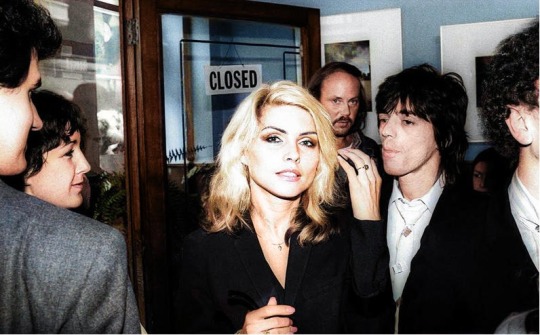
Debbie Harry, Studio 54 in the 1970′s
#debbie harry#1970s#70s#70s icons#punk#blondie#punk rock#music#studio54#disco#nightlife#club#clubbing#party#night#late night#70s fashion#new york#newyorkcity#rock n roll#70s rock#studio 54
1K notes
·
View notes
Photo
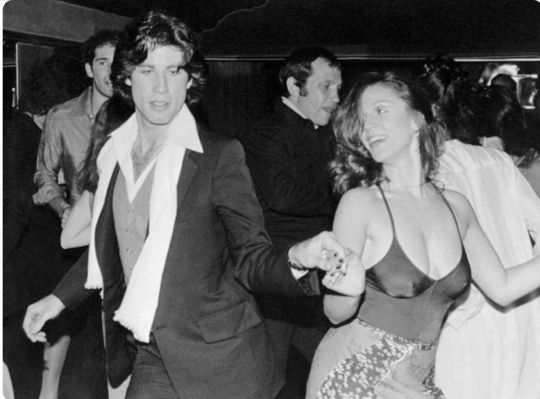
Marilu Henner and John Travolta at Studio 54
165 notes
·
View notes
Text
#FREEDOWNLOADS #FREEPROMO #RADIOCHART
Roy Thode recorded live at Studio 54 NYC November 5, 1981
This presentation from DJ Roy Thode was recorded live at Studio 54 on Nov.5, 1981. My release of this recording is, almost to the day, 42 years after the night it was recorded. I hope you enjoy this step back in time from Roy's opening records to his 'walking out the door' music at the end of the night as you relive "A Night At Studio 54". Keep On Dancing!!
Скачать:
https://ift.tt/sJrazVA
https://ift.tt/xnuHPRy
#classic disco#house music#retro dance music#new york dance culture history#marsha stern#heartbeat of the dance floor#roy thode#classic dance music#new york nightlife#FreeDownload#FreeTrack#studio54#r&b#hi-nrg#Roy Thode recorded live at Studio 54 NYC November 5#1981 The Heartbeat Of The Dance Floor ®#SoundCloud
3 notes
·
View notes
Text

The Club
“Good Times” (1979)
Chic
Atlantic Records
(Written by Bernard Edwards and Nile Rodgers)
Highest U.S. Billboard Chart Position – No. 1
“The key of the success of Studio 54 is that it's a dictatorship at the door and a democracy on the dance floor.” - Andy Warhol
On April 26th, 1977, more than 4000 people showed up on 54th street between 7th and 8th Avenues in NYC to attend the opening of a newly revamped theater turned discotheque (once an opera house in the 1920s) for the grand opening of Studio 54. Eight thousand invites had been sent from many of the bests lists in the city; the line snaked around the block that night with people clamoring to get in. Many celebrities, officially invited, were unable to get through the soon-to-be famous doors. Disco, a popular fusion of soul and dance music, was on the ascendant: hedonistic, generic, joyful, color-blind, and sexually promiscuous (many of the song themes would be about copulation). It was in that year that two newly successful bandmembers from Chic named Bernard Edwards and Nile Rodgers were invited by Grace Jones and unceremoniously turned away at the door. Jones was never famously reliable; there is no telling where she was, but when they didn’t get in they went home and wrote an angry song called “Fuck You”, then changed it to “Freak Out”, then to “Le Freak”, which then went on to become one of the biggest disco songs ever written, and afterward they went to Studio 54 as often as they liked, because there is no golden ticket in the world like fame.

I am sure I don’t have to tell you what Studio 54 was: it was one of the most glamourous, glitziest, expensive spaces in New York. It was a party where everyone, anyone, had a good chance to get in. It held 2,500 and often had more; it had back rooms, was famous for the famous, and sex, and drugs. It had an incredible light show and sound system, and the best DJs. But most of all it was entirely and profoundly mixed: rich, working class, old, young, black, white, gay, straight, gender fluid, normcore. The two owners, Steve Rubell and Ian Schrager, had two rules: they wanted it full, and they wanted a mix, always a mix. Only the uber famous (Halston, Warhol, Jagger, Minnelli, Jackson) were guaranteed entrée; otherwise, it was the mix that mattered. The mix, the show (copious amounts of money on props and effects), and the music.
“A rumor has it that it's getting late
Time marches on, just can't wait…”
- Lyrics from “Good Times”
The club was the answer to a very gritty and tumultuous decade for the US and New York City in particular; it may be no accident that the theater once housed the old CBS studios known as Studio 52. In the 1950s and 1960s they filmed witty game shows here, which showcased intelligent repartee (To Tell The Truth, What’s My Line, Password, The 64,000 Question), shows that were representative of an urbane and prosperous city, and of high American culture. Rubell and Schrager kept a lot of the old leftover camera equipment from that era (whether as props or as a through-line it is hard to ascertain); in reopening its doors they presented a very new idea of glamor in New York, an antidote to the recent near-bankruptcy, inflation, gas shortages, and in 1978, a full-blown newspaper strike. Public housing in The Bronx was a disgrace (literally on fire in 1977 and broadcast live at a Yankees game by Howard Cosell), and fear and paranoia were rampant as Son of Sam ran around viciously killing young women. Out of all this chaos, Studio 54 and disco. Clearly people needed fantasy, and release, and from this scene arose Bernard Edwards (bass) and Nile Rodgers (guitar) of Chic, two highly accomplished black musicians.
The idea of the band was one of sophistication; the three male leads (which included drummer Tony Thompson) were accompanied by two female singers, and everyone dressed beautifully, almost in a retro vision of glamor; the songs were straight-to-the-dancefloor extended disco tracks, or lush ballads with strings. The songwriting was of exceptional high quality, and the playing incredibly expert (their first hits in 1977 were “Dance, Dance, Dance (Yowsah, Yowsah, Yowsah)” and “Everybody Dance”), and no one, no one, sounded even remotely like them: the guitar and bass lines were ingenious and infectious. In fact, if you want to time travel and exactly conjure the feeling of the late 70s, a Greatest Hits collection will take you right there. After “Le Freak” peaked in 1978 (it would be Atlantic’s, and parent company Warner Brothers, biggest seller of all time until Madonna’s “Vogue” in 1990) it seemed as if Chic, disco, and the nightlife of the Studio 54 crowd would go on forever. Except. Except. Was there something about the sound of Chic, a warped, dragging, rather sad tone, to their hits? The more they succeeded, the sadder around the edges the records became.
I never loved “Le Freak”, as good as it was. In 1979, I must have liked “Good Times”, because I bought it; it was the gray Atlantic label and a plain white sleeve, I remember quite clearly. I think I bought it because of the round piano swirl that opens the record— I was obsessed with how the song was constructed; it was perfect. But I also believe I wanted to understand how it worked, to get to the center of it, so I would drop it into the player and stare at it going around and around for clues that never came. Something about it made me sad. It would be decades before I went back to Chic and discovered the joy in that sadness; this was mature music for sophisticated people, and it captured those years so well, and with such elegance, and if it was sad, it was because there are always sad things seeping in, and possibly because their heyday, and all that high style, would be relatively short-lived considering the perfection of the records they were creating.
The Disco Sucks movement started on July 12th, 1979, in Chicago, Illinois. A radio shock jock held a record-burning stunt at a baseball game in Comisky park and 50,000 people showed up, and after the dj blew up piles of disco records, they swarmed the field and started a riot. Record companies began to re-label their sleeves as Dance Records, not Disco, and the white-wash officially began. The record burning has been likened to a Neo-Nazi event, largely inspired by disgruntled white rock fans, and inherently racially motivated, and I would say I fully believe that. It not without irony that the rather sad quality pushing against the melody of “Good Times” was realistic. It was to be their last No. 1 record under their band name, even if they would go on to produce 1980’s Diana (Diana Ross, but a full-blown Chic record, soup-to-nuts) which would sell 10 million copies, and both Edwards and Rogers would go on to have enormous careers as producers, especially Rodgers, with Bowie’s Let’s Dance right around the corner, not to mention Madonna’s Like a Virgin, produced by Rodgers (and on which all three Chic musicians play) as well as so many more. Nevertheless, I am ahead of myself. It is still 1979, and Studio 54 is still thriving.
“Now what you hear is not a test:
I’m rappin to the beat.”
- Lyrics from "Rapper's Delight” *
“Good Times” topped the Billboard Pop charts in August, 1979 (B Side: “A Warm Summer Night”). In September of the same year Nile Rodgers was in a club when he heard a song that clearly used the basic elements of their record: the bass, the guitar, a bit of the strings. It was “Rapper’s Delight”, a novelty record produced by a very savvy Sylvia Robinson to exploit the street scenes of break dancing and rapping in The Bronx, which were usually only performed live with a boombox. Certain songs could easy be rapped over, and “Good Times” was one of them. However, real rappers never considered recording. Enter Robinson, some fast thinking, and four quickly auditioned amateurs to make “Rapper’s Delight” as the Sugarhill Gang, and not only did she have it out in a flash, but on her own label, Sugarhill Records (Sugar Hill is a prosperous neighborhood in Harlem).
That night in the club, Nile Rodgers was not pleased. He and Edwards threatened to sue her immediately, and the matter was resolved quickly by Robinson giving them their writing credits, and thereby their money, and re-releasing it. What he could not have foreseen was that this novelty hit (it only went to No. 38 on the charts) would actually change music forever. It is the first successful mainstream rap record (we had the 12”, the first I ever had, in our house, and my brothers and sisters all learned the lines and became living room emcees), and it went on to establish Hip-hop as a genre. It would also lead to many copycats, and many interpolations of Rodger’s guitar and Edward’s tireless bassline, notably in Queen’s “Another One Bites the Dust” and Blondie's “Rapture”.
Looking back on it, Niles feels very differently about one of the most famous examples of record sampling. "As innovative and important as ‘Good Times’ was,” Nile Rodgers has said, “ ‘Rapper's Delight’ was just as much, if not more so.” He is absolutely correct, of course. The success of the Sugarhill Gang led Sylvia Robinson, tireless entrepreneur, to convince a real rapper, Grandmaster Flash, to write and record a track about life as he saw it from the much grittier streets of The Bronx, and he released it as “The Message”, which was a pivotal first. Rap musicians reference this song endlessly as an inspiration, and I love it just as much for its contribution to electronic music.
Back in 1979 my 14-year-old-self stood for so long staring at my copy of “Good Times” as it revolved on the turntable. Was there a reason it felt warped and catatonic as I listened to it? I will never know. I wasn’t old enough to understand what the single portended, which was the future of pop music, years and years early. Things were beginning, and things were ending, right there, all at once, and right in front of my very eyes. It was easy enough to listen, but very difficult to fully comprehend. I needed another 40 years.
-
Sylvia Robinson, a veteran of the biz, not only produced Grandmaster Flash & The Furious Five’s “The Message” but also sang on Mickey and Sylvia’s chestnut “Love is Strange” (1956) —think Dirty Dancing—as well as her own proto-disco song “Pillow Talk” (1973), predating the moans on Donna Summer’s “Love to Love You Baby” by years, and if you don’t know it (I needed some reminding) it has to be heard to be believed. Let’s just say it is at minimum one of the most suggestive Top 40 songs ever recorded. This was obviously a woman with the ears and ambition for a making a hit record. She is now known as “The Mother of Hip Hop”. She passed away in 2011.
Steve Rubell and Ian Schrager went to prison for millions of dollars in tax evasion in January 1980, but not before throwing a big party at 54. They served reduced sentences and eventually opened the nightclub Palladium. Rubell sadly passed away from AIDS in 1989. He was 45 years old.
*(Songwriters: Richey Edwards / Sherill Rodgers)
6 notes
·
View notes
Photo

Grace Jones & Dolph Lundgren.
I’ve always found them to be such a striking pair. Grace, with her disruptive artistry and razor sharp beauty. Dolph, with his silently strong presence. One dynamic lover, begets another.
9 notes
·
View notes
Text
Sobre o documentário de Donna Summer na HBO Max
No documentário lançado pela HBO na sexta-feira, 19 de maio, Love To Love You Donna Summer, a vida da cantora estadunidense Donna Summer é revista pela ótica de sua filha do meio Brooklyn Sudano em parceria com o diretor Roger Ross Williams. Com direito muitas cenas de vídeos caseiros, entrevistas, bastidores e variadas gravações.
Primeira informação sobre este artigo: na minha infância, eu era…
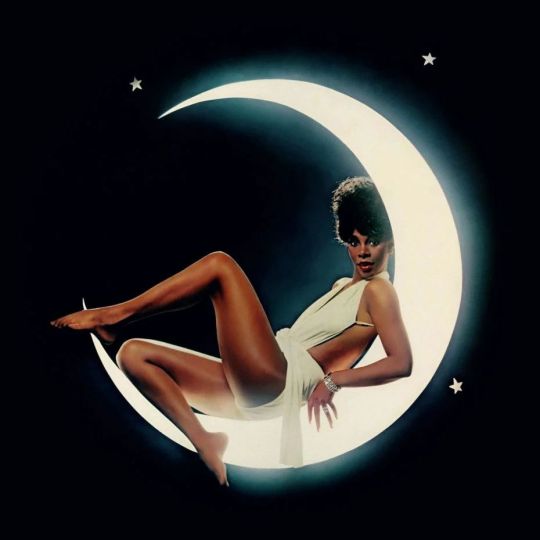
View On WordPress
#discomusic#divadisco#documentario#donnasummer#eradisco#featured#HBO#hbomax#homofobia#lgbtqia+#musica#news#pride#studio54#televisao
2 notes
·
View notes
Photo

🖤Rainbow Sparkles 🌈🌟✨ Model @sevahna Photo @muheeka for @sugarpussclothing Asst @misscharliepearl Nails @thehomegirlhookup 🖤✨ #studio54 #fridaynightfunkin #rollerdisco #disconeverdies #rollergirl #discovibes #70sfashion #sugarpussbabe #hologram #highcutbodysuit #festivallook #editorialphotography #fashionphotography (at Los Angeles, California) https://www.instagram.com/p/CjEtzAWrEMe/?igshid=NGJjMDIxMWI=
#studio54#fridaynightfunkin#rollerdisco#disconeverdies#rollergirl#discovibes#70sfashion#sugarpussbabe#hologram#highcutbodysuit#festivallook#editorialphotography#fashionphotography
3 notes
·
View notes
Photo

Living For Tonight @mrwarburtonmagazine #muse @youngwulff_ @themanagementnyc #fashionstylist @kelllycallahan #makeup #hair @deeptisadhwani #retouching @creative_retouch #fashioneditorial #diva #nycfashionphotographer #gelledlighting #couture #studiolighting #disco #studio54 #nightlifenyc #motion #streamers https://www.instagram.com/p/CeWKuTlAZ9y/?igshid=NGJjMDIxMWI=
#muse#fashionstylist#makeup#hair#retouching#fashioneditorial#diva#nycfashionphotographer#gelledlighting#couture#studiolighting#disco#studio54#nightlifenyc#motion#streamers
4 notes
·
View notes
Photo
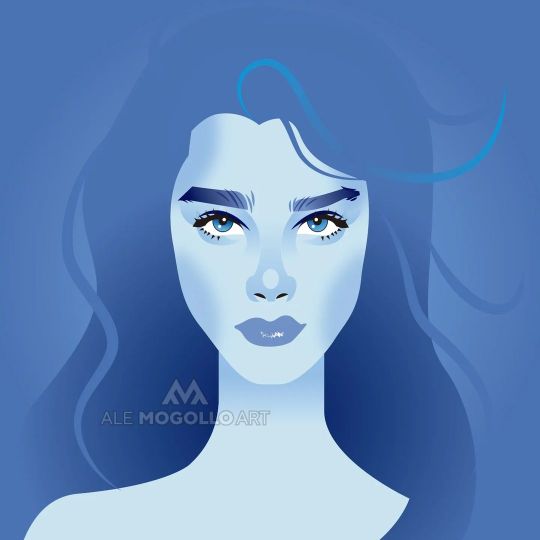
Happy birthday to the iconic actress and model Brooke Shields, who is 57 years young today. Unforgettable in The Blue Laggon and Endless love. #brookeshields #thebluelagoon #endlesslove #model #actress #prettybaby #studio54 #fanart #alejandromogolloart https://www.instagram.com/p/CeOXt_8MnMi/?igshid=NGJjMDIxMWI=
#brookeshields#thebluelagoon#endlesslove#model#actress#prettybaby#studio54#fanart#alejandromogolloart
3 notes
·
View notes
Text

"54" - Adel Bouteldja photographed by Baldovino Barani for FACTORY Fanzine
2K notes
·
View notes
Text
Il Percorso Accademico e la Trasformazione Personale con "STUDIO 54 - Laurearsi a cinquantaquattro anni" di Antonella Iadicicco Russo
Un evento speciale il 27 aprile 2024, presso la Chiesa di San Rufo. Antonella Iadicicco Russo presenterà il suo libro “STUDIO 54 – Laurearsi a cinquantaquattro anni”, una narrazione ispiratrice del suo ritorno all’università a cinquant’anni, che si conclude con una laurea con lode ottenuta dopo una sfida personale ed accademica intensa.
Nel suo libro, Antonella esplora non solo la sua esperienza…

View On WordPress
#AntonellaIadiciccoRusso#CambiamentoPersonale#CrescitaPersonale#EducazioneAdulta#Frates#LetteraturaInspiratrice#misericordia#musikologiamo#RietiCultura#ScienzeDellaComunicazione#Studio54
0 notes
Photo

53 notes
·
View notes
Text
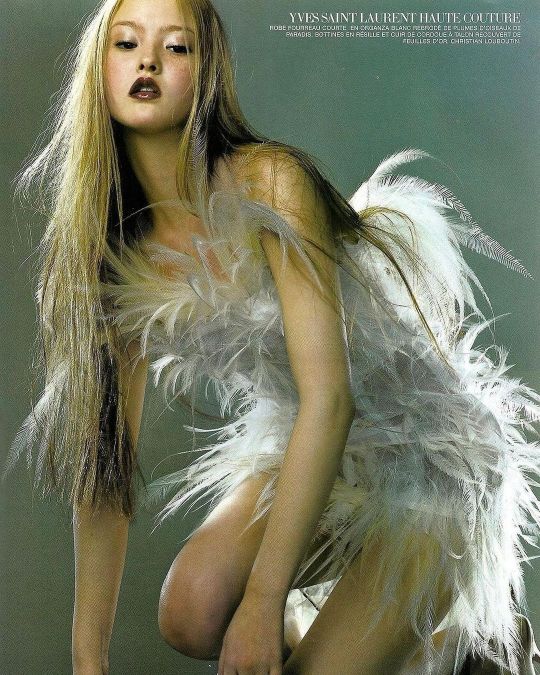
#Vogue#FashionPhotography#DevonAoki#90sFashion#90s#Supermodel#KateMoss#Photography#Disco#Studio54#FashionMagazine#FashionInspiration#TheEditorArchive
0 notes
Link
Hoy la discografía de un artista que afirmó, que la música nunca puede ser mala digan lo que digan del Rock And Roll. Sus influencias fueron la música Conntry/Gospel que escuchaba en la iglesia y los maratones musicales a los que acudia a menudo, tambien la música negra de Rhythm And Blues que absorbió en la mítica Village Streets, poseia un talento divino que compartió con todo el mundo, llegando a ser aclamado por todo el planeta, se hizo con el corazón de jóvenes y mayores, fué admirado no solo por entretenernos a todos. sinó también por su gran humanidad, su generosidad y sus nobles sentimientos hacia el,prógimo, revolucionó el mundo de la música y llego a ser una leyenda viva de su tiempo. Para mi Podcast especial de hoy, la discografía de Elvis Presley, uno de los solistas más vendidos de la historia de la música, y uno de los iconos musicales y culturales del Siglo XX.
Playlist del programa:
00 - Intro- Elvis Presley-A Little Less Conversation.
01 - Elvis Presley-Blue Suede Shoes.
02 - Elvis Presley-Rip it Up.
03 - Elvis Presley-Got a Lot O' Livin' to Do!.
04 - Elvis Presley-Trouble.
05 - Elvis Presley-Fever.
06 - Elvis Presley-Francfort special.
07 - Elvis Presley-Joshua Fit The Battle.
08 - Elvis Presley-I'm Comin' Home.
09 - Elvis Presley-Can't Help Falling in Love.
10 - Elvis Presley-Suspicion.
11 - Elvis Presley-Return to Sender.
12 - Elvis Presley-Crying In the Chapel.
13 - Elvis Presley-Power of My Love.
14 - Elvis Presley-Stranger In My Own Home Town.
15 - Elvis Presley-Patch It Up.
16 - Elvis Presley-Whole Lot-ta Shakin' Goin' On.
17 - Elvis Presley-Promised Land.
18 - Elvis Presley-For the Heart.
19 - Elvis Presley-Unchained Melody.
20 - Blaudzun-Solar (Despedida).
1 note
·
View note
Text
BLOCK AND CROWN ENJOY PART2 80es HOUSE
#HOUSE#MIXCLOUDE#MIXCLOUDEMUSIC#MUSIC#MUSIK#80es#80HOUSE#DISCOHOUSE#DISCO#OLDSCOOL#OLDSCOOLHOUSE#HAUSMUSIK#80erJAHRE#ELECTRONICMUSIC#ELEKTRONISCH#ELECTRO#80MUSIC#ORIGINAL80sSHOWs#ORIGINAL80s#USA#STUDIO54
0 notes